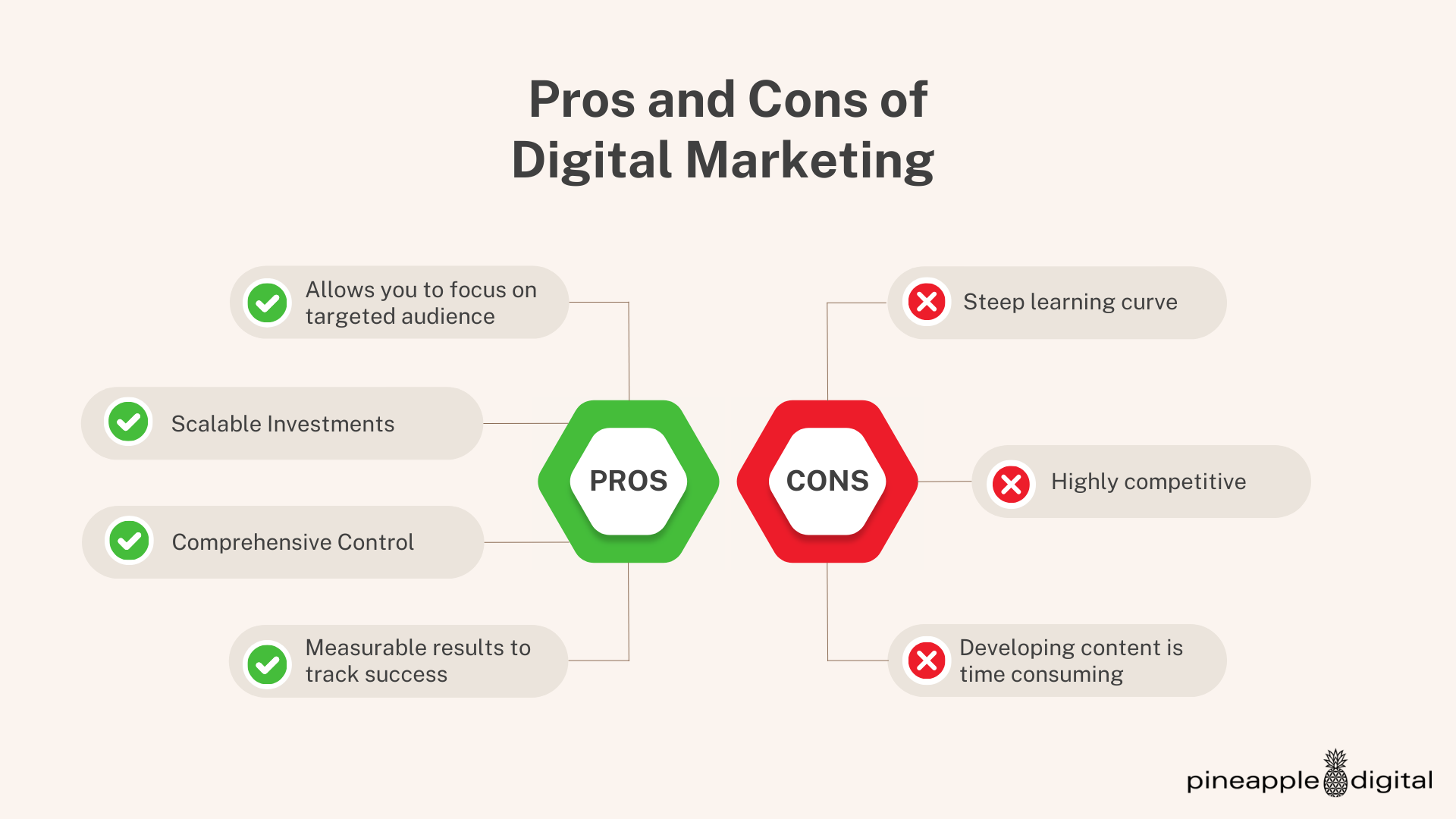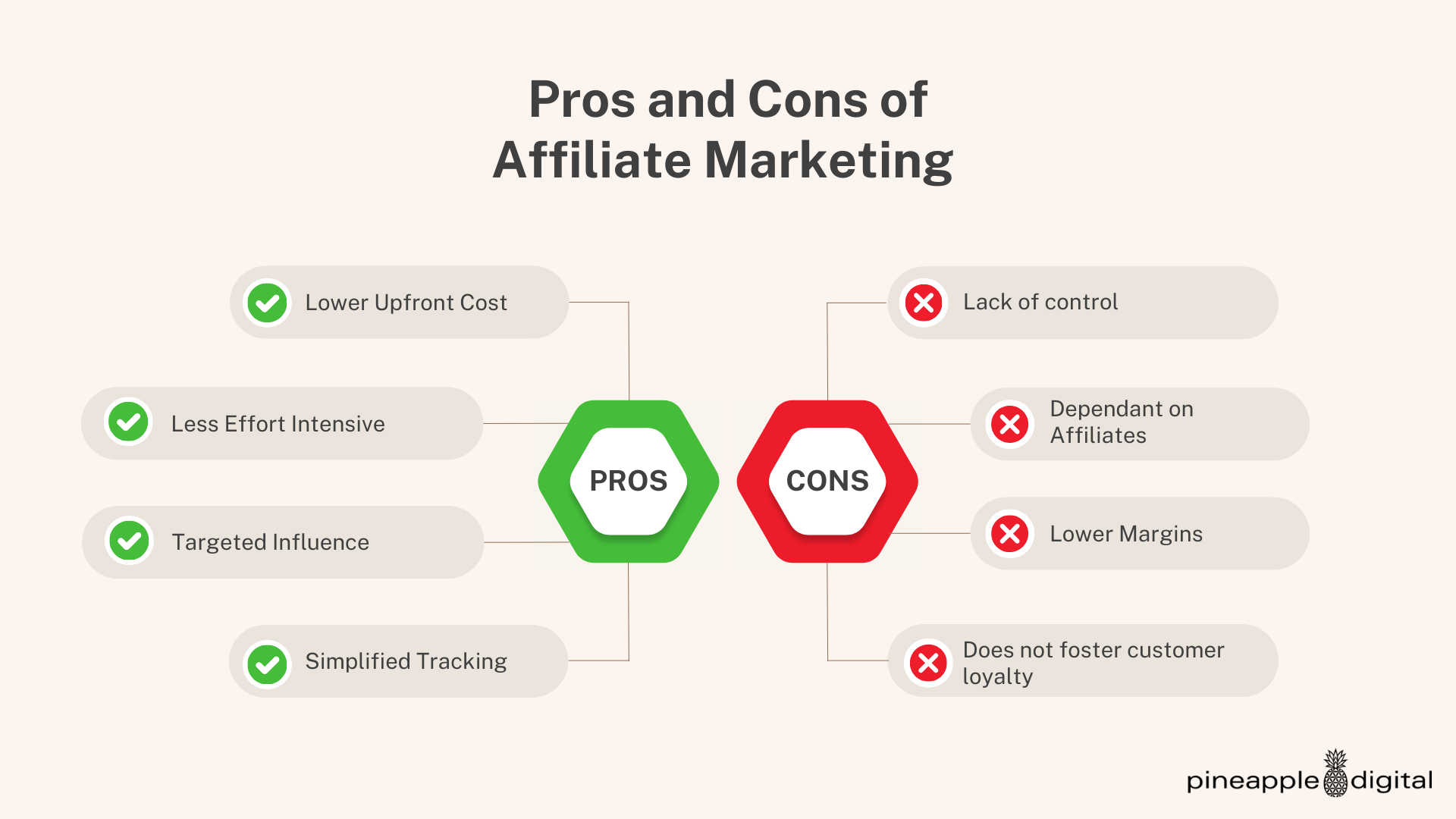In the dynamic world of online marketing, choosing the right strategy is crucial for promoting your products and achieving business growth. Digital marketing and affiliate marketing stand out as two effective approaches, each with its own set of advantages. This post will explore both strategies to help you determine which is better suited for your business needs.
Digital marketing encompasses a wide array of activities aimed at reaching and engaging customers through digital channels. It includes search engine optimization (SEO), social media marketing, email marketing, and content creation, all designed to build a strong online presence and foster customer loyalty.
On the other hand, affiliate marketing is a performance-based marketing strategy where businesses reward affiliates for each visitor or customer brought about by the affiliate’s marketing efforts. This model leverages partnerships with individuals or companies who promote your products on their platforms in exchange for a commission.
While both strategies offer significant benefits, understanding their fundamental principles, strengths, and limitations is essential. Whether your goal is to enhance brand visibility, drive sales, expand your network, or all of the above, choosing the right marketing approach can significantly impact your success.
Core Elements of Digital Marketing

Digital marketing is a multifaceted strategy that utilizes various digital platforms and tools to connect with potential customers where they spend a significant amount of their time: online. By leveraging the digital landscape, businesses can deliver personalized and highly targeted marketing messages that not only enhance brand visibility but also drive customer engagement and conversions.
Search Engine Optimization (SEO):
Search engine marketing involves optimizing your website and its content to rank higher in search engine results. This is crucial because higher visibility in search results can lead to more organic traffic. Effective SEO strategies include using relevant keywords, creating quality content, and optimizing website speed and mobile responsiveness.
Social Media Marketing:
This component of digital marketing uses social media platforms like Facebook, Instagram, Twitter, YouTube videos, and LinkedIn to build relationships and interact directly with the target market. Social media marketing is not just about posting updates; it also involves engaging with followers, responding to queries, and participating in conversations, which helps in building a loyal community around your brand.
Email Marketing:
One of the most effective digital marketing strategies, email marketing involves sending personalized, content-rich emails to a list of subscribers to inform, engage, and convert leads into customers. It’s a direct way to stay connected with your audience, providing them with valuable content and exclusive offers, and driving traffic back to your website.
Content Marketing:
The aim of content marketing is to attract and retain a clearly defined audience by creating and sharing valuable informational content like blog posts, videos, infographics, and more. This strategy is used to establish expertise, promote brand awareness, and keep your business top of mind for when it’s time to make a purchase.
Digital marketing’s broad scope allows it to be adaptable for any business model, targeting various customer segments with precision. Its ability to integrate with other marketing strategies and provide measurable results makes it an indispensable part of a modern marketer’s toolkit.
Core Elements of Affiliate Marketing

Affiliate marketing operates on a performance-based model that benefits both the advertiser and the affiliate. This strategy harnesses the power of influence and networks to drive sales or actions through external partners who market your company’s products in exchange for a commission. Here’s how it breaks down:
Affiliate Networks and Programs:
Businesses typically join or create affiliate programs that are managed through networks connecting them with affiliates. These networks facilitate the tracking of links, and management of commissions, and provide tools for both parties to maximize their efforts. By using these networks, businesses can tap into a broader pool of potential affiliates who already have established audiences.
Commission Models:
Affiliates are compensated based on the actions taken from their referrals, which can include sales, leads, or clicks. Common models include pay-per-sale, pay-per-lead, and pay-per-click, allowing businesses to align the commission structure with their marketing objectives and ensure they only pay for results.
Affiliate Marketing Tools:
To be effective, affiliates use various tools such as unique affiliate links, tracking software, and analytics to optimize their performance and improve conversion rates. These tools help affiliates understand what strategies are working and how they can better align their content with the interests of their audience.
Influencer Marketing:
A significant component of successful affiliate marketing is leveraging content creators who have a strong rapport with their followers. Influencers can be more effective than traditional affiliate marketers because they often engage with highly targeted audiences who look to their social media posts for recommendations, translating into higher conversion rates.
Affiliate marketing offers a cost-effective way for businesses to expand their reach and harness the marketing power of third parties. It requires minimal upfront investment compared to other marketing methods, making it an attractive option for businesses looking to maximize their marketing budgets.
Which Marketing Strategy is Right for Your Business?
When deciding between digital marketing and affiliate marketing, understanding the unique advantages and limitations of each can guide you toward the best choice for your business goals. Here’s how to evaluate which strategy might be more beneficial depending on your specific circumstances:
Business Model and Product Type:
- Digital Marketing: Ideal for an online business looking to establish a robust presence and build long-term relationships with a wider audience. It works well for products and services that require extensive customer education or rely on brand trust.
- Affiliate Marketing: Best suited for businesses that benefit from third-party validation and can easily track sales or actions through an affiliate link. It’s particularly effective for products that are easy to promote and result in quick purchase decisions.
Cost Efficiency and ROI:
- Digital Marketing: Requires a continuous investment in content creation, platform management, and campaign optimization. The ROI can be significant, but typically builds over time as strategies like SEO and content marketing mature.
- Affiliate Marketing: Offers a lower risk with its performance-based payment model. You pay for results, which can provide a clearer initial ROI and higher profit margins. This makes it attractive for businesses with limited budgets or those looking for a more predictable cost structure.
Control and Branding:
- Digital Marketing: Provides complete control over messaging and branding. Businesses can fine-tune their approach based on direct customer feedback and data analytics.
- Affiliate Marketing: While it extends your reach, it also means relying on third parties to communicate your brand message, which can sometimes lead to inconsistency if not managed properly.
Scalability and Reach:
- Digital Marketing: Scalable across different platforms and geographies with the ability to target specific demographics using sophisticated tools and data.
- Affiliate Marketing: Allows rapid scaling by tapping into the networks of affiliates who already have established audiences. However, the reach is dependent on the affiliates’ ability to effectively promote your product.
Integration and Synergy:
Both strategies do not have to be mutually exclusive. Many businesses find that integrating affiliate marketing into a broader digital marketing strategy allows them to leverage the strengths of each. For example, using SEO to increase site traffic that affiliates can convert, or using content created by affiliates to enhance social media and email marketing campaigns.
Ultimately, the choice between digital marketing and affiliate marketing should be based on a thorough assessment of your business needs, marketing budget, and long-term growth objectives. Consider how each strategy could potentially complement the other and whether a hybrid approach might serve your goals more effectively.
Enhancing Your Business Strategy with Pineapple Digital
Choosing the right marketing strategy can transform your business growth and profitability. Whether digital marketing, affiliate marketing, or a combination of both is best for you depends on your specific business goals and market demands.
At Pineapple Digital, we specialize in crafting tailored marketing strategies that align perfectly with your business objectives. Our experienced team can help you navigate the complexities of digital and affiliate marketing, ensuring that you leverage the most effective tactics to attract and engage your target audience.
If you’re ready to amplify your marketing efforts and drive significant business results, contact Pineapple Digital today. Let us help you unlock the full potential of your marketing strategy with solutions that are as dynamic and innovative as your business.
Reach out to us to explore how we can help you make the most informed and strategic marketing decisions for your business’s success.
